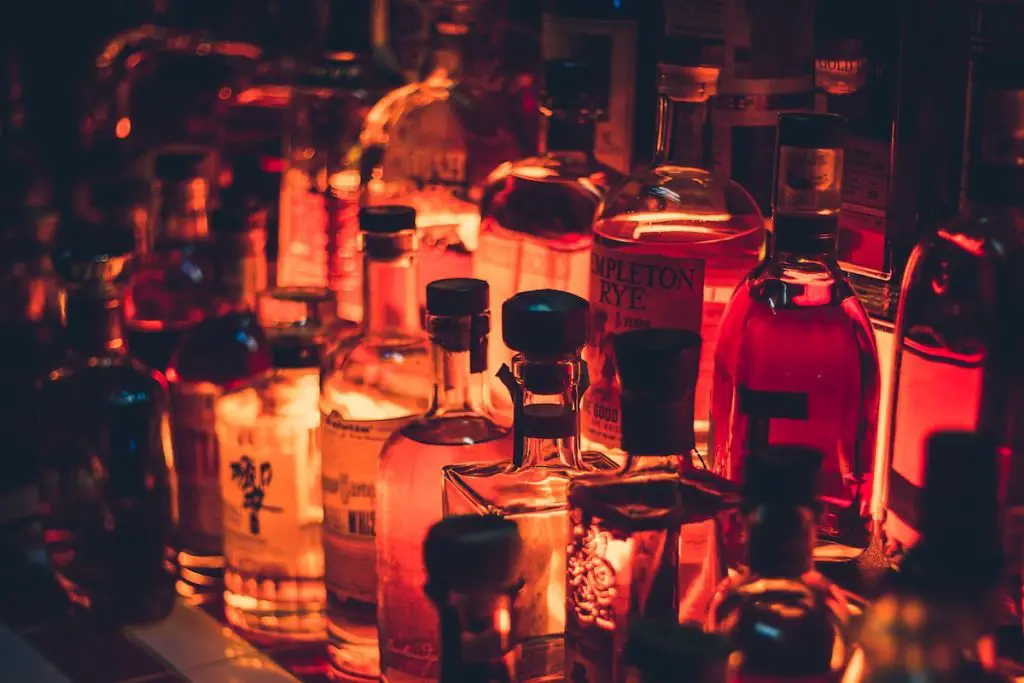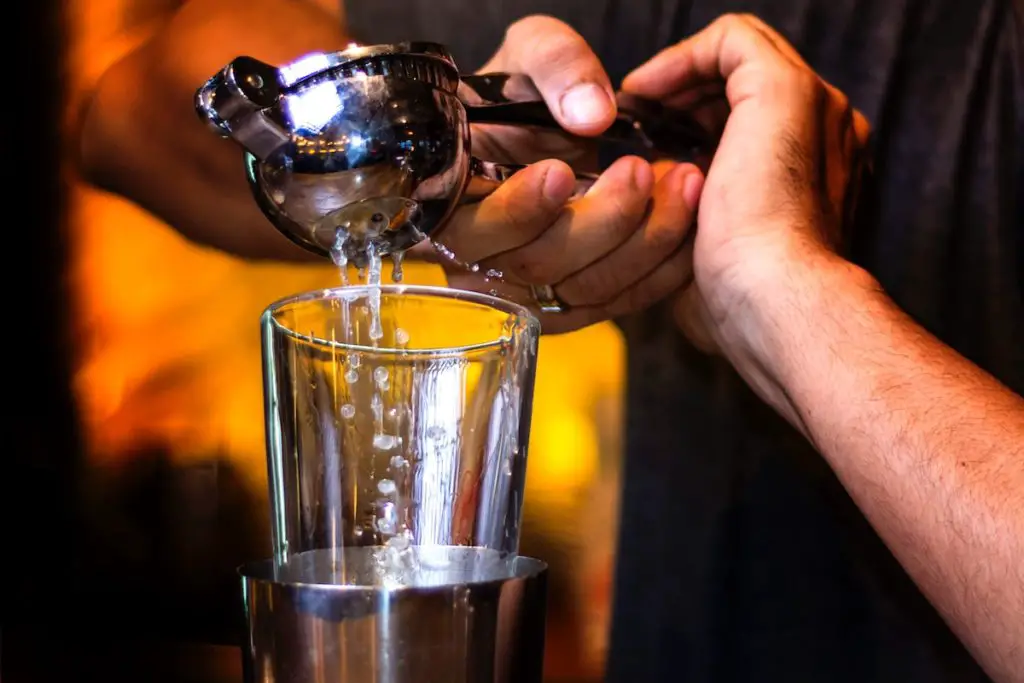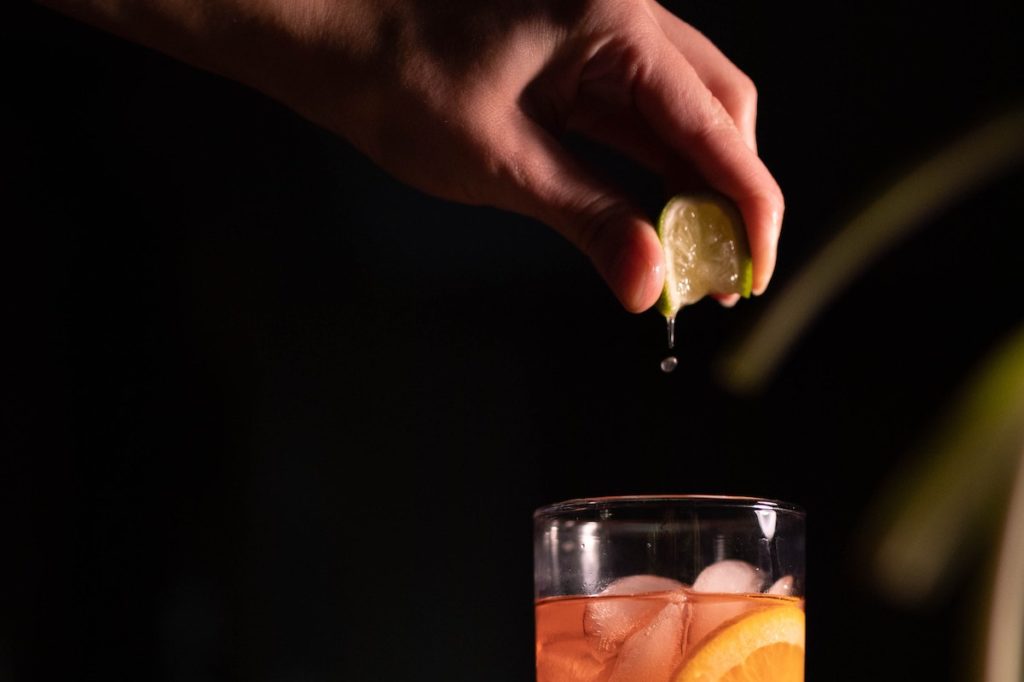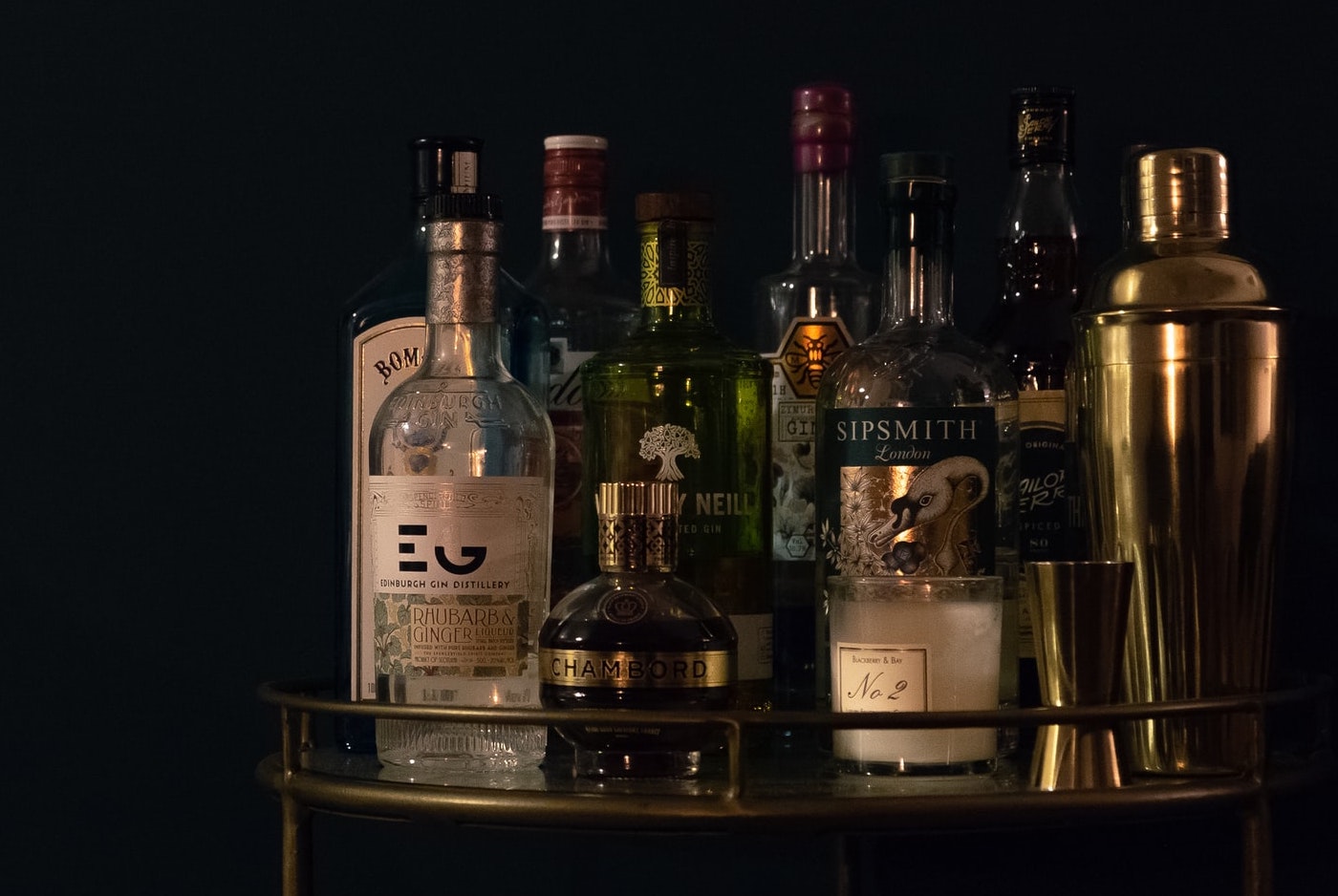In an age where drink options are nearly endless, it’s hard to know which bottles are necessary and which are nice-to-have. We will guide you to the essentials in building a well-stocked home bar. They are ingredients necessary in creating most cocktails from classics to contemporary favorites.
We’ll cover a broad spectrum of essentials here and while it would be ideal to have each of them on hand, it may not be very practical. Your cocktail journey and drinking style will help you define which bottles will be your essentials. Beyond that, if you entertain guests at home, it’s considerate to have additional ingredients in order to serve them their favorite cocktail.
We round up twelve bottles that we consider the bar(e) necessities at the end for those who are just starting their bar collection.
1. Base Spirits

Vodka
Crystal-clear vodka is the most versatile spirit and there’s a range in quality.
- A budget-friendly bottle is great for mixing with fruit juices like a Bloody Mary where you’re not really going to taste the spirit.
- Having a higher quality bottle is best for vodka Martinis that are spirit-forward and will showcase the full flavor of the vodka.
- Lastly, you can add your favorite flavored vodka. Citrus and vanilla are reliable standbys.
Gin
The botanical flavors in gin are not for everyone and can vary drastically from brand to brand.
- If you’re looking to make a dry Martini or a Gin and Tonic it’s best to have a London dry gin at the very least.
- Beyond a dry gin, you can explore different brands to find the flavor you prefer.
Whiskey
Whiskey is the broadest category of spirits, ranging in classification and flavor depending on where it comes from.
- Kentucky Bourbon and Canadian whisky are typically the most versatile when mixed in a Manhattan or in an Old Fashioned. Bourbons are usually more robust in flavor, while Canadians are smoother.
- Rye and Tennessee whiskey tend to be drier and spicier in flavor. If you’re looking to make classics like a Sazerac or Brooklyn you’ll need one of these on hand.
- Finally, having an Irish whiskey or blended-Scotch will round out your whiskey selection nicely. They’re not as common or versatile as the others but are ideal for drinking on-the-rocks or in a Rob Roy (Scotch Manhattan).
Rum
A truly well-stocked bar will have two kinds of rum, preferably a light and a dark, but other kinds include gold, aged, and spiced rum.
- Light rum (also known as white rum) is the most versatile of the rums and essential for making either a Daiquiri or a Mojito.
- Dark rum is aged in barrels longer than light rum, which creates a stronger molasses flavor, keep this in mind if you ever need to substitute one for the other. You’ll need dark rum for a Dark ‘n’ Stormy and for just about every tropical cocktail.
Tequila
The agave-based spirit comes in a few forms, and a true connoisseur will have more than just one type of tequila.
- A bottle of blanco (or silver) tequila is the most versatile and is essential for making a Margarita or Paloma.
- An aged tequila like a reposado or an añejo will upgrade any tequila cocktail and both are great for sipping.
Brandy
Brandy is more of a nice-to-have and isn’t as commonly used in cocktails as the former spirits but will be essential for some classic cocktails.
- A standard VS or VSOP brandy will be the most budget friendly and are key ingredients in a Sidecar and a French 75.
- An aged brandy like Cognac or Armangac will create a smoother cocktail. They are typically enjoyed neat as an after dinner digestif and can come with a hefty price tag.
- In the broader sense, the term “brandy” can be any spirit distilled from the wine of any fruit, these are also called “eau de vie.” This group includes Calvados (or apple brandy), Grappa, and Pisco. These are even less common cocktail ingredients but are worth noting.
2. Essential Liqueurs

There are countless types of liqueurs and in each of their categories, they often vary in flavor from brand to brand. Let your personal taste guide you in this section, but these first three are going to be the most essential in creating the classics.
- Dry & Sweet Vermouth: These are technically fortified wines and are typically used to balance flavors in spirit-forward cocktails. Dry vermouth is essential to a Martini while sweet vermouth is key in a Manhattan.
- Orange Liqueur (or triple sec): This is a versatile and an invaluable bottle to have on hand. It is essential to make popular drinks like a Margarita, Cosmopolitan, and the Sidecar.
- Amaro: This is a family of bitter Italian herbal liqueurs and they range in bitterness. Aperol is a mild amaro and is a good introductory brand ideal for refreshing drinks like a Spritz. However, if you’re looking to make a Negroni or Sazerac the stronger Campari is a necessity.
Secondary Liqueurs
While not necessarily essential, they are not uncommon ingredients and can be found in both classic and contemporary cocktails. Depending on your drinking style and the cocktails you prefer, the smallest bottle you find of these could be adequate for quite some time.
- Amaretto
- Coffee Liqueur
- Irish Cream Liqueur
- Raspberry Liqueur
- Elderflower Liqueur
- Maraschino Liqueur
3. Essential Mixers

Mixers are just as essential as spirits, most drinks will require at least one if not two of these. Many are good household items to have on-hand and if unopened will have a long shelf life. For items like lemon or lime juices, we highly recommend freshly squeezed for the best flavor.
Carbonated Mixers
- Club Soda or Seltzer
- Tonic Water
- Ginger Beer
- Lemon Lime Soda or Cola
Juice
- Lemon
- Lime
- Orange
- Pineapple
- Cranberry
Sweeteners
- Simple Syrup (sugar and water)
- Sugar
- Honey or Agave Syrup
Bitters
- Angostura Aromatic Bitters
- Orange Bitters
Secondary Mixers
- Grenadine: This sweetened pomegranate-flavored syrup is necessary for drinks like a Tequila Sunrise, Clover Club, and the Sea Breeze.
- Rose’s Lime: A sweetened lime juice that is essential for drinks like the Gimlet.
- Milk, heavy cream, or Half-and-Half: These dairy options are typically used in coffee-based cocktails like a White Russian or Irish Coffee.
- Eggs (or Aquafaba): An egg white or the vegan alternative, Aquafaba, is essential in achieving the decadent foamy top on any of these cocktails.
4. Essential Garnishes

It may be tempting to skimp on garnishes, but they affect the flavor and are key in the presentation of the cocktail as much as the glass you serve it in. They are the final touch to your drink that you’ve worked hard on and will take it from basic to extraordinary.
- Lemons: A simple lemon peel expressed over the drink will add a hint of citrus.
- Limes: A squeeze of a good lime wedge is great for adding extra zest.
- Oranges: An orange peel can sweeten and mellow the flavor of a strong cocktail.
- Olives: These are essential in a Martini, spring for cocktail onions to make it a Gibson.
- Maraschino Cherries: These are key to many cocktails but most essential in a Manhattan.
We’ve covered a broad spectrum of essentials, and it would be ideal to have every one. Keep in mind your taste, drinking style, and budget when determining which are essentials to you. We hope as your home bar grows these necessities will enable you to make more and more great and complex cocktails.
For those who are just beginning a bar collection, we recommend the following twelve bottles.
- Vodka, of a higher quality
- London Dry Gin
- Bourbon Whiskey
- Blanco Tequila
- Sweet Vermouth
- Dry Vermouth
- Orange Liqueur
- Lemon Juice
- Lime Juice
- Club Soda
- Tonic Water
- Angostura Bitters

This is such a helpful article. Helps organize what can be a confusing and daunting decision. Thanks!
Thanks for sharing! We’re happy to help make being a home bartender a bit easier.